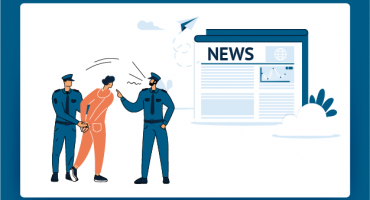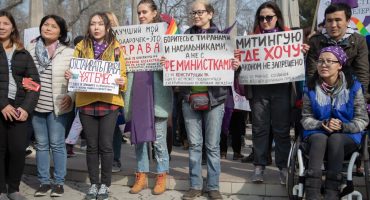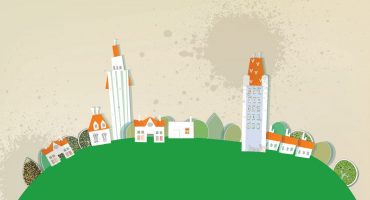Radio is dead. Long live the new radio – podcasts! We have collected all what newcomers should know about internet audio shows that have conquered the world and become one of the key information trends at present.
Podcasts are sometimes described as “radio on the internet.” In fact, this is very close to the reality because podcast is an internet radio show that can be listened to via a smartphone, laptop or a PC.
Yes, because you can listen to them any time just by connecting to the internet or by downloading an audio file to your device.
By the way, one more difference from radio is that podcasts are abundant in topics. They can contain latest news of politics and culture, review tech novelties or latest scientific inventions, read bestsellers or classical literature, help you learn any foreign language, discuss sex, music, cinema. They contain anything you can even imagine!
Podcasting started as an independent way for individuals to get their message out there and build a community of people with similar interests.
It is still relevant. However, in general, podcasting is gradually turning into the industry and you can find not only individual podcasts, but also shows created by radio networks, companies, comics, TV companies, religious organisations and others on the internet.
No. There isn’t a pre-determined length, format, style, production level, or anything else.
Podcasts can be broken up into seasons, like a TV show, or be episodic and ongoing. Episodes can be weekly, or daily. In other words, there is any cadence the creator desires.
There are the following music and podcast platforms:
- Google Podcasts
- Apple Podcasts
- Yandex.Music
- Spotify (if you live in a country where it is available)
- Overcast
- Anchor
- Castbox
They are also available in other apps and on websites, including news websites.
The most comfortable way of listening to podcasts is via a smartphone. Almost every smartphone has at least one way of listening, and most of them have a variety of ways! Anyway, once you have a smartphone, you have the perfect way to listen to podcasts.
All iPhones have a built-in app for podcasts. Just find Apple Podcasts among your apps. It is a great app for a regular listener that allows searching the catalogue, finding new shows, and subscribing easily.
If you have an Android phone, most probably you don’t have a built-in app for podcasts. However, you can download any of the above via PlayMarket.
Technically, the easiest and most obvious way to listen to a podcast is to listen to it via a PC. The only disadvantage is that you are riveted to your desk, but sometimes it does not matter. It can be a good way to find new shows and give them a try before you subscribe to them on your phone.
How does it work? Almost every podcast has a play function right on the episode page. Just go to the podcast page, find the play button and listen.
According to latest statistical data of podcasts, a car is the most popular place to listen to podcasts. It makes sense because it has always been a large space to listen to radio, while podcasting is new radio.
Every podcast app has a tab with recommendations that you can browse. Start with it. Some apps have more interesting offers than others, but anyway you can choose something interesting.
You can also use a search engine: just enter “… podcast” plus key words and you are likely to find what you will like to listen to.
You just need to subscribe to the podcast in the app you use and it will notify you about new episodes.
Yes, there are. They are very few, unfortunately.
Podcasts in Kyrgyzstan are done in Kyrgyz and Russian. Their authors speak to their audience on a variety of topics.
Here are some examples of home-made podcasts:
“Ysyk nan” (Hot bread)
The podcast is done in the Kyrgyz and is dedicated to the adaptation of ethnic Kyrgyz who have lived on snowy ranges of Pamir (Afghanistan) for a few centuries, and now, by a twist of fate, have their new motherland – on the slopes of Tien Shan in Naryn.
“Vtoraya smena” (Second shift)
This podcast is about feminism in the life of two authors – Begaiym and Natasha. They speak on how feminism has affected them, their daily routines and unexpected situations. Every two weeks podcasters choose a tricky topic and try to grasp it.
“Eki daryger” (Two doctors)
Doctor, surgeon Ermek Ismailov and his colleague, therapist Begimai Zhetimishova, record a medical podcast in the Kyrgyz named “Eki daryger” (Two doctors). Thus, the authors want to improve the level of medical literacy among people.
“Bolshe chem seks” (More than sex)
Podcasters tell about how things work in sex, dispel the myths and explain what is normal and what is not. Also, they deal with other topics.
“Stigmy net” (No stigma)
The podcast about mental health in a plain language. The authors record every episode with guests who talk about mental and behavioural disorders without stigma, but with support, in order to dispel the myths about such disorders and find answers to the question: “How to accept it?”
Here are podcasts by authors based in Central Asia broken down by countries.
Here you can find Central Asian podcasts, useful and interesting for those who are engaged in media sphere.
If you want to try yourself as a podcaster, here is the online course for you.
And here are the records of the first Central Asian festival “Hello, podcasters!”.
Title photo: Getti Images
This publication was produced as part of the mentorship programme under the Development of New Media and Digital Journalism in Central Asia project delivered by the Institute for War and Peace Reporting (IWPR) with support from the UK Government. It does not necessarily reflect the official views of IWPR or the UK Government
If you have found a spelling error, please, notify us by selecting that text and pressing Ctrl+Enter.





